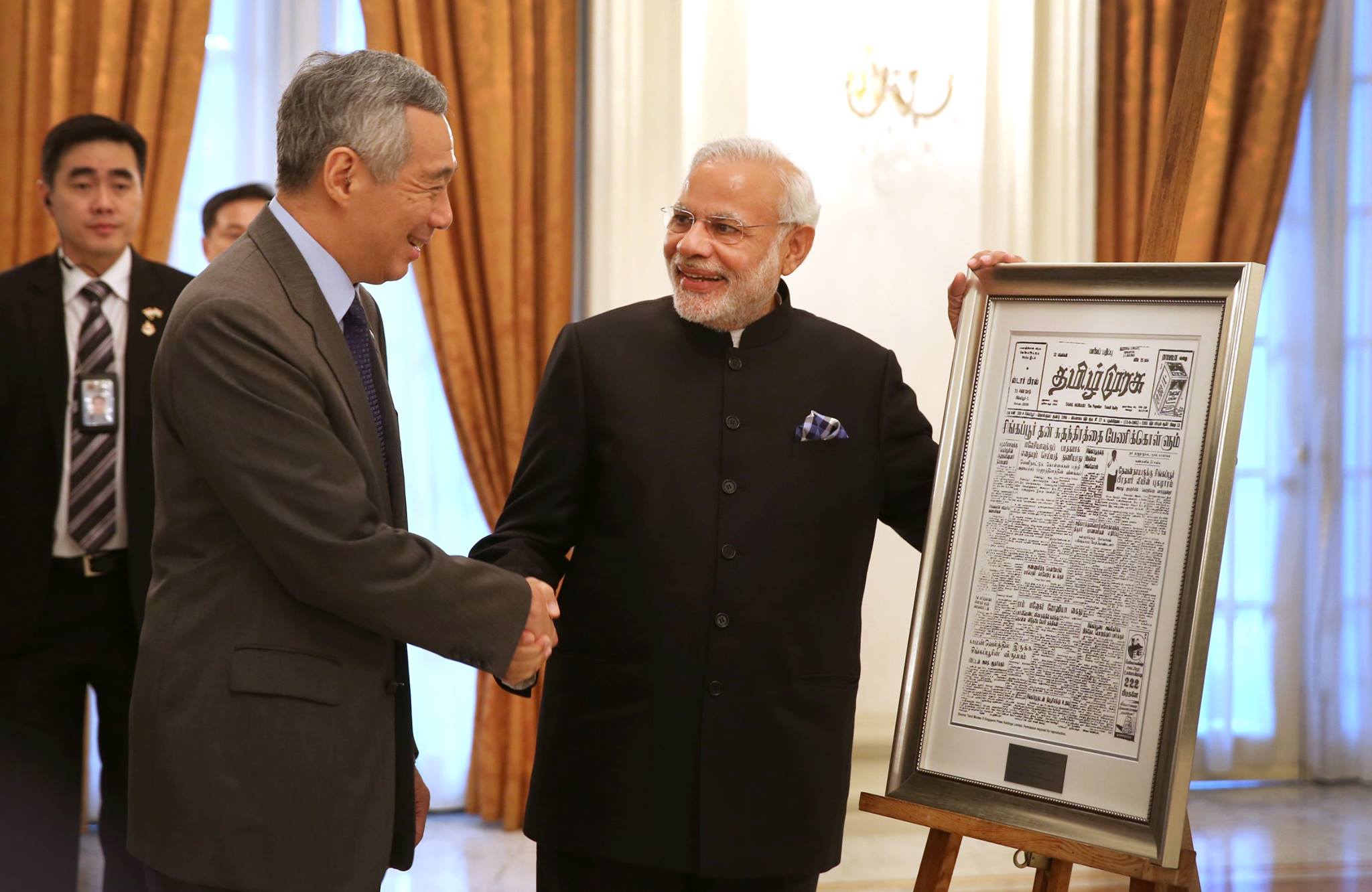 |
Singapore’s Prime Minister Lee Hsien Loong said his government was looking to expand relations beyond Colombo and reach out to Jaffna, after signing a series of free trade agreements with Sri Lanka earlier this month.
Sri Lankan Prime Minister Ranil Wickremesinghe was on an official three day visit to Singapore last week, where he signed “four Memoranda of Understanding (MOUs), and a Joint Statement between the Ministry of Trade and Industry of Singapore and the Ministry of Development Strategies and International Trade of Sri Lanka to launch negotiations on a bilateral free trade agreement”, according to Singapore’s Ministry of Foreign Affairs.
Prime Minister Loong though said his country wanted to go beyond Colombo, stating Sri Lanka can be a gateway “to the Indian Ocean region for Singapore companies”.
During a lunch held to mark Mr WIckremesinghe’s visit Mr Loong highlighted how “since the 19th century, Singapore’s small but vibrant Sri Lankan community has contributed significantly to our development”.
He went on to point out that “Jaffna Tamils in the Straits Settlements’ civil service helped to lay the foundation for Singapore’s administrative and government services”.
The prime minister also spoke of Singapore’s first foreign minister Sinnathamby Rajaratnam, who was born in Jaffna (See our obituary here).
Mr Loong announced that he hoped to “build on our long cultural and people-to-people linkages”. One aspect of that will be helping to restore the Jaffna Public Library, with the Singapore’s foreign ministry stating that the “National Library Board will donate another 500 books to update the Jaffna Public Library’s (JPL’s) collection, as part of its longstanding collaboration with the JPL”.
Singapore has previously assisted with Jaffna Library restoration projects, announcing a youth development program in 2014 designed to help 3,000 youngsters in the district and donating of 10,000 English books.
The country’s deep cultural links with the Tamil people have been particularly longstanding. In 2011, the government announced a new Tamil-language elective for high-ability secondary and junior college students who want to go deeper into the language, its literature and culture under the National Elective Tamil Language Programme (NETP).
 |
When Indian Prime Minister Narendra Modi visited Singapore last year, it was Mr Loong who gifted him with a copy of the Tamil Murasu, which first reported on India’s recognition of Singapore as an independent country in 1965.
“We are going beyond Colombo,” added Mr Loong at last week’s dinner. “To get to know other cities in Sri Lanka better, like Jaffna.”
